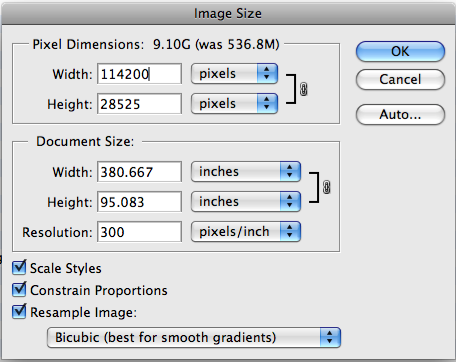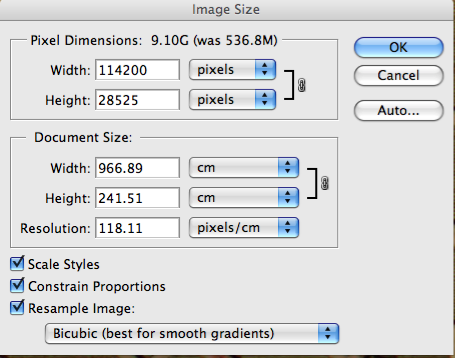Posts Tagged ‘pixels per inch’
Why DPI Does Matter
March 4th, 2010by Gwyn Headley
Managing Director
I was pointed to a couple of blog postings yesterday, one called The Myth of DPI and the other titled Why DPI Does Not Matter.
Their arguments are logical and faultless. Their reasoning is sound. The message they are trying to get across is correct. But they are both wrong.
So why are they wrong?
Because they are writing about images on the web, and mentioning DPI. When you set the image size and resolution in Adobe Photoshop you never have the option of choosing the DPI of an image. This is what you get if you choose inches as your preferred units:

and this is what you get if you choose metric:

The option you have is of choosing “pixels/inch” or “pixels/cm”. Not “dots/inch” or “dots/cm”. Adobe Photoshop is concerned about your digital file. It doesn’t give a monkeys what you intend to do with it later. So it offers you ppi, NOT dpi, which is used in printing terminology. 300 pixels per inch equals 118.11 pixels per centimetre.
Our earnest bloggers are absolutely right in that ppi is irrelevant when you’re showing images on a screen. But dpi is relevant when you print those images, because then you can figure out how large you can print the image before those annoying little pixellations get in the way and become visible. 300 dots per inch is generally enough for the human eye to be tricked into seeing continous tone.
fotoLibra has always demanded that images uploaded to its site should be 300 ppi, for two perfectly valid reasons — and one utterly compelling one. You can read about them here.
I agree with my friends Ben Gremillion and Svein Wisnaes that resolution counts for nothing on the web. So it generally doesn’t matter, until you come to selling your photographs. When you are selling photographs to book publishers who need to print them at 300 dots per inch, it’s common courtesy to supply them at 300 pixels per inch.
Otherwise they might buy them from someone who took the trouble to go the extra step.

